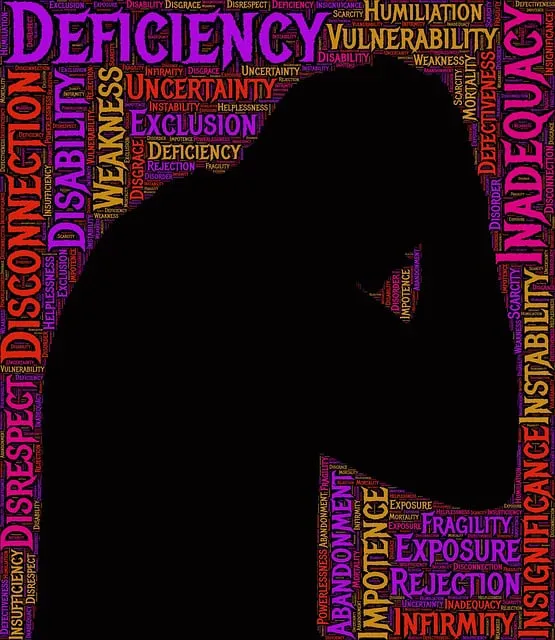Stress, influenced by personal challenges, work demands, relationships, and environmental factors, triggers physiological responses leading to anxiety, irritability, and fatigue. Effective management at Littleton Kaiser Permanente psychiatry reviews involves strategic interventions like communication skills training, social skills enhancement, emotional intelligence development, self-care practices (exercise, mindfulness, sleep), risk management planning, and evidence-based techniques such as cognitive-behavioral therapy (CBT) and relaxation techniques. A holistic approach equips individuals with tools to adapt to and manage stress, promoting overall well-being through personalized strategies and continuous support services.
Stress management techniques are essential for maintaining mental well-being, especially in today’s fast-paced world. This comprehensive guide explores various aspects of stress mitigation, starting with understanding its causes and effects, as highlighted in recent Littleton Kaiser Permanente psychiatry reviews. We delve into evidence-based strategies, the role of mental health professionals, and practical steps for sustainable stress relief. By combining these elements, individuals can navigate life’s challenges more effectively.
- Understanding Stress: Unraveling the Causes and Effects
- Evidence-Based Techniques for Effective Stress Management
- Role of Mental Health Professionals in Teaching Stress Mitigation Strategies
- Practical Implementation and Continuous Support for Sustainable Stress Relief
Understanding Stress: Unraveling the Causes and Effects

Stress is a multifaceted experience that arises from various sources, impacting individuals physically and mentally. Recognizing its root causes is pivotal in effective stress management. At Littleton Kaiser Permanente psychiatry reviews, experts highlight that stressors can stem from personal challenges, work pressures, relationships, or even environmental factors. These triggers initiate a cascade of physiological responses, leading to heightened anxiety, irritability, fatigue, and, in severe cases, chronic health issues.
Understanding these connections is crucial for implementing strategic interventions. Communication strategies, social skills training, and cultivating emotional intelligence are proven methods to navigate stress effectively. By enhancing self-awareness and communication, individuals can better express their needs, seek support, and foster healthier relationships—all essential components in managing and reducing stressful situations.
Evidence-Based Techniques for Effective Stress Management

Stress management is a vital aspect of mental health, and evidence-based techniques have been extensively studied and implemented by professionals like those at Littleton Kaiser Permanente psychiatry reviews. One effective approach involves Self-Care Practices, such as regular exercise, mindful meditation, and adequate sleep. These activities help regulate the body’s stress response and promote emotional well-being. Studies show that integrating self-care into daily routines can significantly reduce symptoms of anxiety and depression, thereby enhancing overall resilience to stressful situations.
Additionally, Risk Management Planning for Mental Health Professionals is crucial in preventing burnout, a common issue within the field. This involves setting clear boundaries, prioritizing tasks, and engaging in regular debriefings to process emotionally demanding cases. By adopting these strategies, professionals can maintain optimal performance while ensuring patient safety. Effectively managing stress not only benefits individuals but also contributes to the overall quality of mental health care services.
Role of Mental Health Professionals in Teaching Stress Mitigation Strategies

Mental health professionals play a pivotal role in teaching stress management techniques, offering expertise and guidance to help individuals navigate challenging situations. They employ evidence-based practices derived from various therapeutic approaches, such as cognitive-behavioral therapy (CBT), mindfulness, and relaxation strategies. Through individual or group sessions at facilities like Littleton Kaiser Permanente, these professionals empower clients to develop inner strength and foster positive thinking.
By integrating risk management planning for mental health professionals into their practice, they can create a supportive environment where individuals learn to identify and mitigate stress triggers. This holistic approach ensures that patients gain practical tools to enhance resilience, adapt to stressful situations, and improve overall well-being, as underscored in the psychiatry reviews of Littleton Kaiser Permanente.
Practical Implementation and Continuous Support for Sustainable Stress Relief

Implementing stress management techniques effectively requires a practical approach that integrates into daily life. At Littleton Kaiser Permanente psychiatry reviews, professionals emphasize the importance of tailored strategies. Each individual’s journey to stress relief is unique, so personalized plans are key. These might include integrating Mind Over Matter Principles for cognitive reframing and emotional regulation, or utilizing specific relaxation techniques like deep breathing exercises and mindfulness meditation.
Continuous support plays a vital role in sustaining these practices over time. Trauma Support Services can help individuals navigate underlying triggers and develop coping mechanisms robust enough to withstand challenging situations. Regular check-ins with mental health professionals ensure progress tracking and prompt adjustments to the stress management plan, fostering a culture of long-term emotional well-being.
Stress management is a vital aspect of overall well-being, and as reviewed in this article, both mental health professionals and evidence-based techniques play pivotal roles in teaching effective strategies. By understanding the causes and effects of stress, individuals can empower themselves to navigate challenging situations. The practical implementation of these techniques, coupled with continuous support, ensures sustainable stress relief. Resources like those offered by Littleton Kaiser Permanente psychiatry reviews highlight the importance of accessible mental health services in fostering healthier communities.




